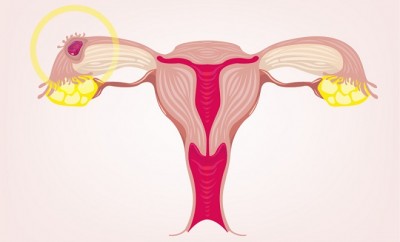Can You Feel Implantation? A Guide To Implantation Bleeding
Implantation bleeding is one of the earliest signs that you may be pregnant. This bleeding is a fairly common symptom of pregnancy, occurring in about 20 – 30% of all cases. Here you can learn more about why implantation bleeding occurs and how you can distinguish it from regular menstrual bleeding.
Why Implantation Bleeding Occurs
After the egg has become fertilized it moves along the Fallopian tubes and into the Uterus. Once it arrives it will attach to the uterine lining. This process is called implantation and usually occurs between six and twelve days after fertilization. While the fertilized egg travels along the Fallopian tube it can cause damage to the blood vessels in the uterus. This can in turn lead to blood leaking down into the vagina. It is this which we commonly refer to as implantation bleeding or spotting.
How To Differentiate Menstrual Bleeding From Implantation Bleeding
Many woman mistake implantation bleeding for menstrual bleeding. Consequently they are often surprised to learn that their pregnancy is a month further along than they thought. However if you know what to look for differentiating between implantation and menstrual bleeding is usually not too difficult.
The two main differentiating factors is that implantation bleeding is lighter and lasts for a shorter period of time. Implantation bleeding typically only last for a couple of days and in some case it may be no longer than several hours. Menstrual bleeding also tends to be heavier with a darker, red color. In contrast the bleeding caused by implantation tends to a lighter pinkish or brownish color. Woman who experience light periods may find it more difficult to distinguish between the two types of bleeding.
Can You Feel Implantation?
There are other pregnancy symptoms which can help you feel implantation has occurred. One common pregnancy symptom is morning sickness. This is a nausea which occurs at the start of the day. This can include vomiting or an aversion to smells that may have had no effect beforehand. Another pregnancy symptom are changes to your bathroom habits. This can include constipation and the need to urinate more frequently. Finally, sore or tender breasts are another symptom of pregnancy. If you notice any of these other signs in conjunction with lighter than normal bleeding then it may indicate that you are pregnant.
Checking For Pregnancy
If you think that bleeding may be a result of implantation then you can use either a blood or urine pregnancy test to confirm. A blood pregnancy test will provide a positive result approximately 3 to 5 days after implantation occurs. A urine pregnancy test will give a positive result about 4 to 5 days after implantation. Keep in mind that implantation bleeding only occurs in about one third of all cases of implantation. A lack of implantation bleeding does not mean that your aren’t pregnant.
If you have any questions or are uncertain about the type of bleeding you are experiencing you should consult with a medical professional. A doctor or planned parenthood clinic will be able to provide you with an accurate assessment as to whether you are pregnant.













